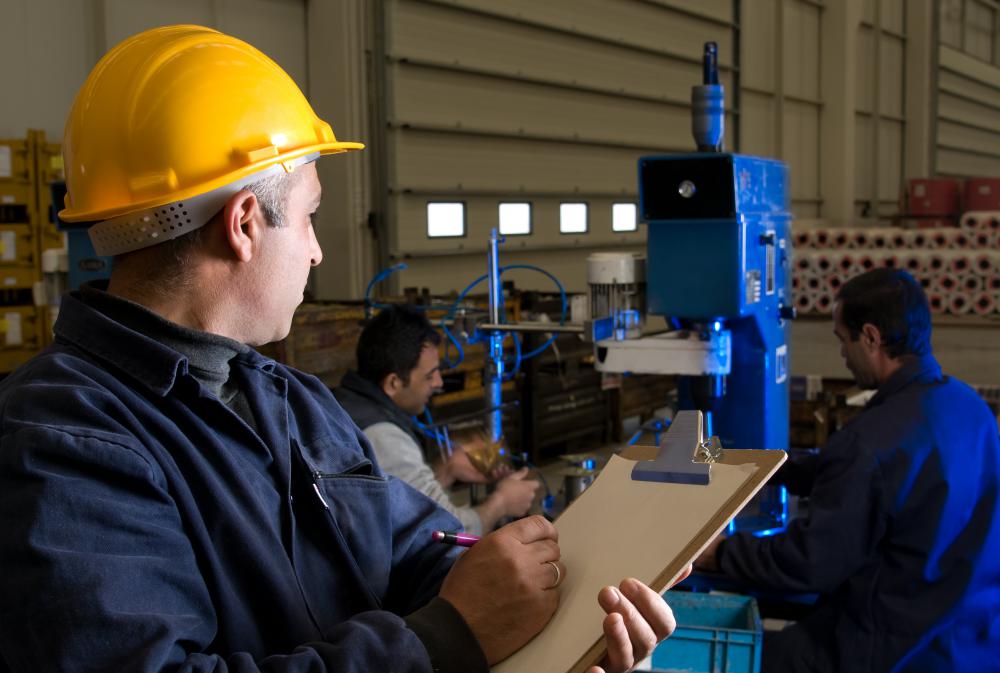At WiseGEEK, we're committed to delivering accurate, trustworthy information. Our expert-authored content is rigorously fact-checked and sourced from credible authorities. Discover how we uphold the highest standards in providing you with reliable knowledge.
What Are Indirect Manufacturing Costs?
Indirect manufacturing costs — also called manufacturing overhead, factory overhead, or manufacturing support costs — are those items that do not go directly toward produced goods or services. A company requires these costs in order to run a production process as a whole rather than to produce a single item. Types of indirect manufacturing costs, for example, include rent, depreciation for facilities or equipment, and maintenance in addition to building security, quality control costs, and small materials that go toward the production of all goods. Managerial accountants must record these costs into an account and then allocate a portion of them to each item produced. In short, these costs represent one major group of total production costs.
All companies have some type of indirect manufacturing costs. In those businesses that do not manufacture physical goods, these indirect costs carry the name general, selling, and administrative expenses. The costs do not have a direct tie to any goods or services in the company. Instead, the costs supply resources to all departments and individuals working within the business. Companies looking to reduce costs often look at these indirect costs in order to find areas where cutting costs will save money without reducing the quality of the company’s actions.

Manufacturing companies tend to record indirect manufacturing costs into a single account labeled manufacturing overhead. The balance in this account is never really zero; there are always some costs in here so long as the company produces goods. When a batch of goods goes through the production system, managerial accountants compute the amount of indirect manufacturing costs to allocate toward these items. In some cases, a company may use a predetermined overhead rate to apply these costs. This rate represents the expected amount of factory overhead to apply to manufactured goods.

A predetermined overhead rate represents the standard amount of manufacturing overhead required to produce a single good. For example, managerial accountants review the total estimated amount of manufacturing overhead costs needed to produce a specific number of goods. Then, a cost driver total — such as labor hours or machine hours — is necessary to determine the per-unit cost for factory overhead. Dividing the total manufacturing overhead costs by the total expected cost driver amount results in the necessary predetermined overhead rate. Allocating this per-unit amount of costs to all produced goods will move the factory overhead costs from the manufacturing overhead account to goods produced by the company.
AS FEATURED ON:
AS FEATURED ON:














Discuss this Article
Post your comments